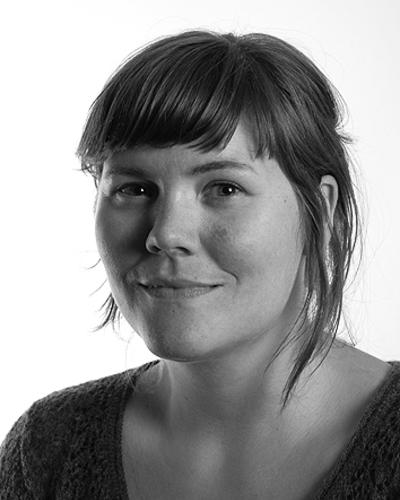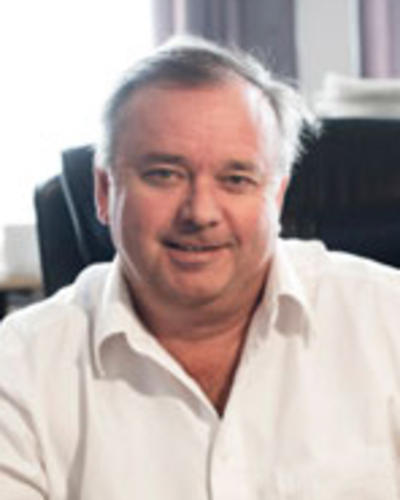CO2-EOR for CCUS in Colombia and Ecuador: Norwegian energy initiative
CO2 EOR for CCUS
Main content
CO2 capture and subsequent storage in geological formations the subsurface is a key technology to curb atmospheric climate gas emissions. Significant global efforts are necessary to accelerate widespread implementation of CO2 storage, which has this far been restricted by the high cost. In developing countries access to affordable energy is a concern and fossil fuels, in particular oil and gas, will continue to provide essential energy during the energy transition in the next decades.
Combining permanent CO2 storage with oil recovery; where the utilization of anthropogenic CO2 for oil recovery also reduces the carbon footprint of fossil fuels; is an important part of the available technology portfolio to reduce emissions while contributing to timely up-scaling of CO2 storage globally. By utilizing anthropogenic CO2 for enhanced oil recovery (EOR), the carbon footprint in oil production is reduced and CO2 safely stored. CO2-EOR is currently the only process that may store sufficient CO2 volumes to mitigate climate change. Development of Carbon Capture, Utilization and Storage (CCUS) in Ecuador and Colombia can reduce the emissions from fossil fuel production, needed to meet a growing energy demand. By educating a new generation of energy engineers, with the whole value chain for carbon capture utilization and storage integrated in their education; this goal may be within reach. Oil recovery on the Norwegian Continental Shelf (NCS) is cleaner and significantly more efficient than the world average. In contrast, primary recovery is still responsible for the main oil production in Ecuador and Colombia, providing much lower recovery factors and production is currently decreasing due to declining reserves in existing oil fields. During the energy transition, the alternatives for meeting the energy demand within national oil production are either exploiting new zones, such as the Yasuni National Park in Ecuador, which was declared as a biosphere reserve by UNESCO in 1989 or implementing EOR. CO2-EOR with combined CO2-storage (CCUS), could be the key to maintain oil-production while minimizing the carbon footprint in South America. The Reservoir Physics Research Group at the University of Bergen has expertise within experimental EOR research, focusing on CO2-EOR with combined CO2 storage. The research laboratories at UiB comprise quality equipment for visiting students to perform state-of-the-art pore to core investigations at relevant reservoir pressures and temperatures. The research group at UiB has lately developed a lab-to-field upscaling procedure and are currently in charge of a CO2-foam field pilot in Texas, USA, demonstrating increased CO2 storage with improved revenues relative to conventional CO2 EOR. This experience will also be highly beneficial to South American countries seeking to employ CO2 storage on the field scale, where technology transfer to higher educational institutions in Ecuador and Colombia is a first step.
We present a North-South-South initiative, where CCUS related knowledge and research is transferred between the three partner institutions: University of Bergen (Norway) Universidad Nacional de Colombia (Colombia) and The Escuela Superior Politecnica del Litoral (ESPOL, Ecuador). The main objective of the collaboration is to educate the next generation of petroleum engineers: energy engineers, who will have the entire value chain of CCUS integrated in their education. The 6-year project will enable students from three countries to participate in active CCUS research, especially utilizing the experience gained in UiB-led CCUS lab to field research, and establish long-term, international scientific networks. The new generation of energy engineers will be better qualified to apply sustainable solutions and contribute to evidence-based development of energy in South America; where the formation of a strong regional collaboration also facilitates future industry-academia collaborations south-south.
Project goals
- Educate the next generation of petroleum engineers: energy engineers, who will have the entire value chain of CCUS integrated in their education.
- Utilize the knowledge and competence at the University of Bergen to guide CCUS research in Colombia and Ecuador, where the overall goal is to store CO2 during oil production, minimizing the carbon footprint of fossil-based energy.
- Enhance the regional south-south collaboration between Ecuador and Colombia within sustainable energy; especially strengthening the bond between The Faculty of Mines at UNal (Colombia) and the Geosciences Faculty at ESPOL. Strong bonds are mutually beneficial for the partners, and for technology development and implementation in the region.
Exchange students

Publications, dissemination and outreach:
The project home page in CRISTIN (Current Research Information System in Norway) : [Link]
Peer-reviewed publications:
- Cobos Mora, Jacquelin Elizabeth: Sandnes, Martine Folgerø; Steinsbø, Marianne; Brattekås, Bergit; Søgaard Erik G.; Graue, Arne. Evaluation of wettability alteration in heterogeneous limestone at microscopic and macroscopic levels. Journal of Petroleum Science and Engineering 2021, volume 202 (July). https://doi.org/10.1016/j.petrol.2021.108534
- Franco, C., Franco, C. A., Zabala, R. D., Bahamón, I., Forero, A., & Cortés, F. B. (2021). Field
Applications of Nanotechnology in the Oil and Gas Industry: Recent Advances and Perspectives. Energy & Fuels, 35(23), 19266-19287. https://doi.org/10.1021/acs.energyfuels.1c02614
- Céspedes, S., Molina, A., Lerner, B., Pérez, M. S., Franco, C. A., & Cortés, F. B. (2021). A
Selection Flowchart for Micromodel Experiments Based on Computational Fluid Dynamic
Simulations of Surfactant Flooding in Enhanced Oil Recovery. Processes, 9(11), 1887. https://doi.org/10.3390/pr9111887
South-south collaboration:
ESPOL team members presented the Ecuadorian energy context and introduce the CCUS project as a sustainable innovative project. Opportunities to the Petroleum Engineering course for the sustainability of the energy industry. Organized by the SPE Ecuador section: https://twitter.com/EcuadorSpe/status/1494335026724442131

- Small Giants talk: Nanotechnology at the service of the Petroleum Industry. Invited speaker Dr. Farid Cortes from UNAL. Talk organized by the Faculty of Engineering in Earth Sciences jointly with the Research Dean of ESPOL under the framework of the CCUS project.
https://twitter.com/FictESPOL/status/1499425934222532608


